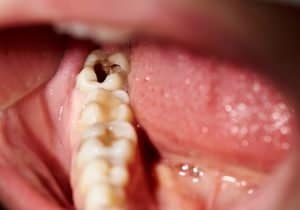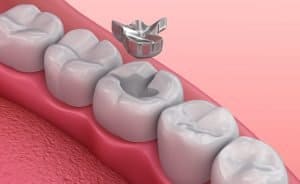A dental cavity is one of the most common dental issues. Sometimes, you feel a little twinge in your mouth when biting down on food. This indicates a sign that you have sensitive teeth or weaker bone owing to a calcium deficiency, for example. The pain will likely grow when this happens as well. If you feel that twinge, it indicates a cavity and it cannot be ignored. The more you ignore it, the more your oral health is in danger as the decay can get progressively worse.
Cavities are frustrating, but it indicates a problem with your oral health, and likely with the oral routine you carry out. Visiting the dentist at the earliest opportunity is important so the dentist can assess the severity of the cavity and the damage it caused. The dentist will also determine the type of cavity that’s been formed.
Yes, there are different types of cavity, which may make you feel even worse! There’s no need to panic. Below outlines the different types of cavity to help you determine the type of issue you’re experiencing.

Pit And Fissure Cavities
Pit and fissure cavities occur at the top of your teeth, or the chewing surface and they are most common on the back molars. The molars have something called grooves that help you chew down your food. Pit and fissure cavities occur owing to dental plaque build-up when bacteria become stuck inside them. To reduce it, go over the top and bottom of the molars gently and regularly when brushing your teeth to avoid plaque hardening.
Smooth Surface Cavities
Smooth surface cavities occur on the smooth sides of the teeth. Yes, the sides of your teeth can get cavities too owing to dental plaque as well. Dental flossing along with brushing your teeth will be enough to keep the plaque levels low. Although, this kind of cavity is rare to develop.

Root Cavities
A root cavity appears at the surface root of a tooth. This is considered the most serious as healthy roots are necessary to keep the tooth healthy. Roots offer less protection as well, so cavities can grow quicker, especially if you suffer from gum disease. Brushing teeth gently, along with drinking lots of water to maintain high saliva levels are important.
If you’re showing either these types of cavity, the dentist will be able to easily determine the type of cavity you’re experiencing. Either way, any cavity is dangerous and will require urgent attention. If this is you, get in touch with us today with our dental specialists for an appointment.


